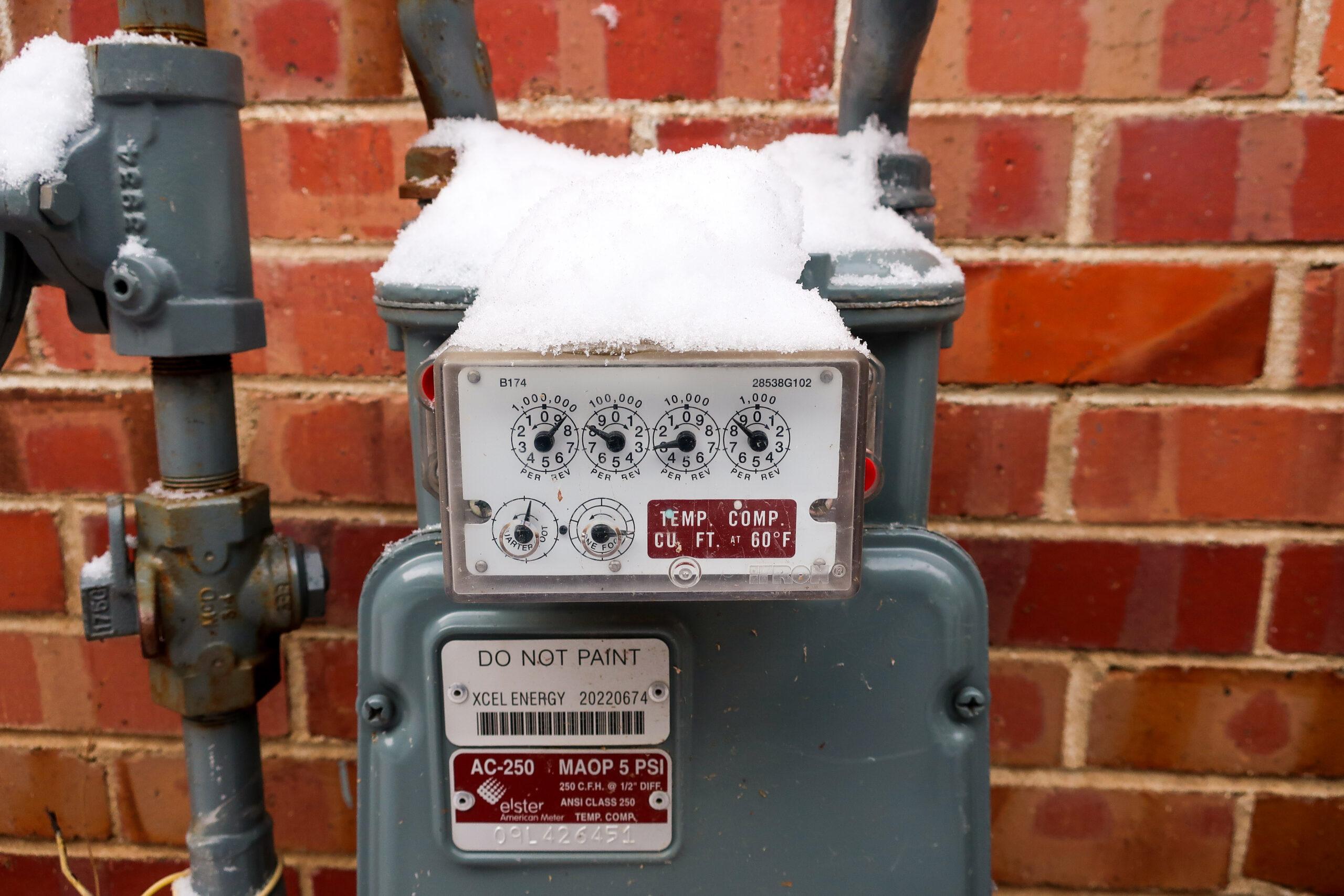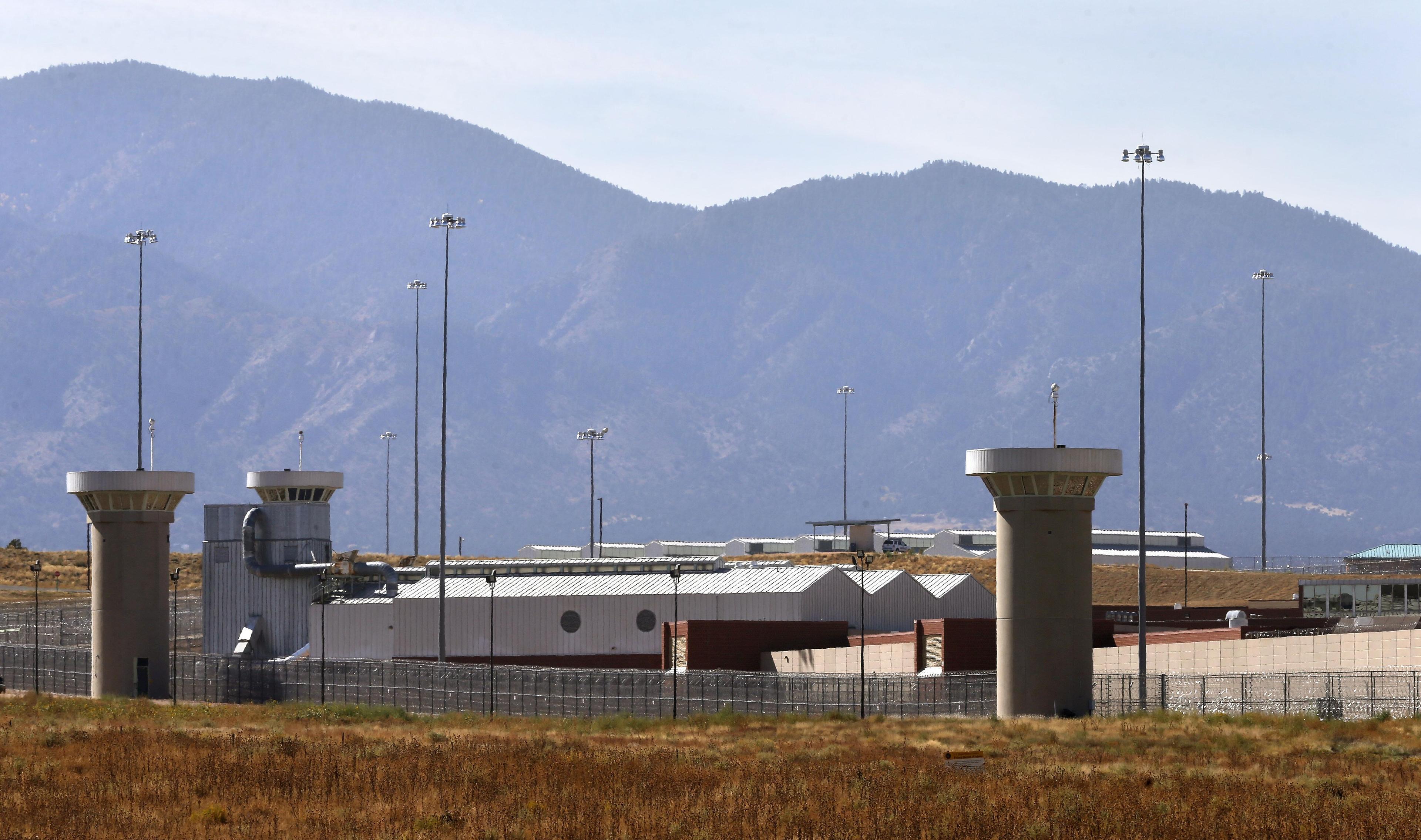
Gov. Jared Polis on Monday blamed volatile natural gas markets for shockingly high winter heating bills, announcing new plans to help expand access to financial assistance and insulate households from future price spikes.
Many Colorado families have seen their energy bills double or triple this winter. In a press conference at the governor’s office, he argued the price increases are a result of Colorado’s heavy dependence on natural gas, which federal data show heats about 66 percent of the homes statewide.
"Natural gas is a globally traded commodity," Polis said. "The market sets the price, but there's a lot we can do to make ourselves more immune to that in the future and provide relief now to save people money."
Polis called on his administration for a two-stage response. The first step, he said, is to get more struggling customers into existing bill-assistance programs. In the long term, he directed his administration to redouble its efforts to wean the state from fossil fuels in order to protect residents from future price swings.
He detailed the plans in an eight-page letter to top regulators and utility executives. Most of the document lists projects already underway within the Colorado Energy Office, including home energy rebates funded by the federal Inflation Reduction Act and enacting new statewide energy efficiency standards for new buildings.
Polis also offered new guidance to the Colorado Public Utilities Commission, which oversees gas and electric utilities. While the governor-appointed commission acts independently, the letter calls on the three-member panel to use the next year to develop new strategies to protect households from future bill spikes.
The letter suggests potential ideas like offering both utility companies and customers financial incentives to conserve natural gas. It also asks commissioners to explore a moratorium from disconnecting gas service during the winter heating season.
At the core of Polis’ plan is a push to reframe a debate around natural gas. For decades, the industry has argued the fuel offers a lower-cost, reliable option for home heating.
His administration has countered by noting electricity is less susceptible to sudden price shocks, a point it’s used to argue that a rapid transition is both a response to climate change and Colorado’s rising cost of living.
Volatile natural gas prices are the main reason for rising energy bills in Colorado, but there’s another critical factor: The cost of new infrastructure projects and profits for utility companies.
Federal data show natural gas prices reached their highest point in 14 years due to the war in Ukraine earlier this summer. Investor-owned utility companies pass those higher commodity costs directly onto customers without collecting an additional profit for their shareholders.
A January analysis from the state utility commission examined the impact on customers with Xcel Energy, Colorado's largest gas and electricity company. It found an average household's monthly gas and electricity expenses saw an $87 jump in December 2022 compared to a year earlier. The analysis showed that higher-than-usual natural gas prices accounted for 34 percent of the increase, a larger share than any other factor.
A decline in global natural gas prices could bring some relief soon. Under an Xcel Energy plan recently approved by state regulators, the company claims an average residential customers’ bill should drop by about $18 per month over the next few months.
Another factor pushing up energy bills is rising base rates, which aren't connected to global energy markets. Colorado regulators approve rate increases so utility companies can recover the cost of capital projects like new natural gas pipelines, transmission systems or wind farms.
Those charges are also how investor-owned utility companies turn a profit for investors. In 2022, Xcel Energy reported a record $1.74 billion in net revenue and noted Colorado as its most lucrative service territory.
The rate hikes are a smaller — but permanent — factor in rising energy bills. The commission’s analysis found Xcel Energy's electricity and gas base rate increases accounted for 16 percent of the increase in average energy costs.
Polis addressed the prospect of further rate increases during his press conference on Monday, saying he's tried to appoint utility commissioners who would push back against utility companies’ requests for base rate increases. Those regulators have nevertheless approved four rate hikes in as many years.
The utility commission is now considering whether Xcel Energy can collect another $312 million from its electric customers starting this fall. Further hikes are likely after regulators approved Xcel Energy's plans to build $10 billion in transmission and renewable energy projects over the next decade.
Polis has encouraged investments in the electric grid by signing a suite of climate laws. His administration has taken a different tack on natural gas, approving legislation to require more scrutiny and planning around proposals to expand Colorado’s vast network of natural gas pipelines.
"The last thing we should do is force ratepayers to pay more to make us more beholden to potential future swings in the cost of natural gas," Polis said.
Utilities, a union and representatives for the oil and gas industry held their own press event about rising energy costs following the governor's announcement on Monday.
Bob Frenzel, the president and CEO of Minneapolis-based Xcel Energy, said the groups had formed a coalition dedicated to reducing energy costs. That alliance planned to donate $1 million to Energy Outreach Colorado, a nonprofit that helps residents cover the cost of energy bills.
"We're proud to stand here with our other industry partners as we seek to offset the burden everyday Coloradans are feeling from high energy prices," Frenzel said.
The exact details of that financial commitment are murky. Frenzel said Xcel Energy would contribute $500,000 "shareholder-funded dollars," but did not clarify which other entities would provide the remaining funding.
Robert Kenney, the president of Xcel Energy Colorado, also addressed the issue of rising base rates and profits. After winning an electricity and natural gas rate hike in 2022, he confirmed the possibility the company will seek another gas rate hike at the end of 2023.
"We ask for what we need to be able to provide the safe, reliable service that we are committed to provide," Kenney said.









